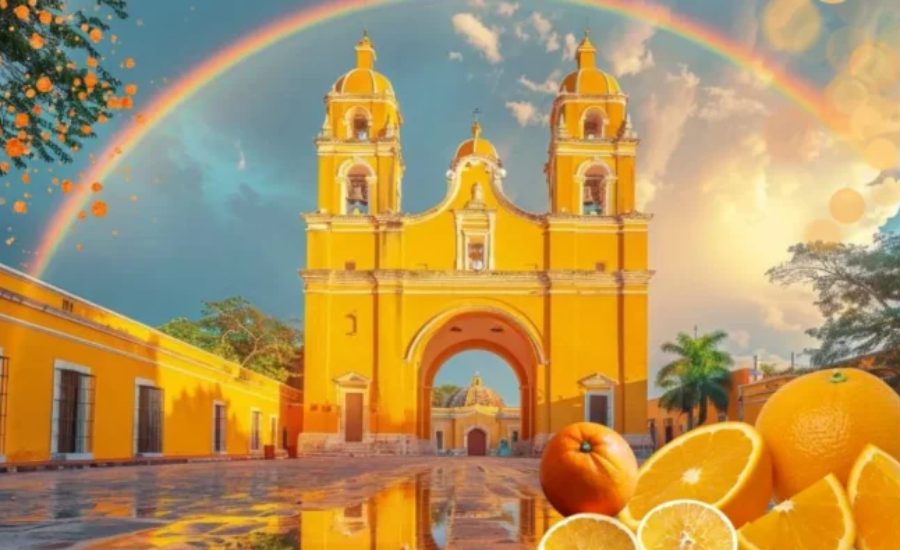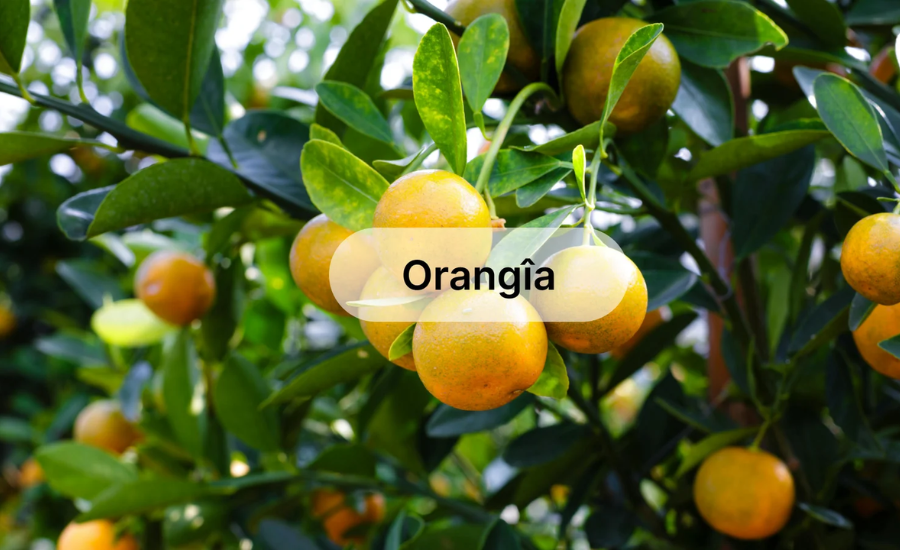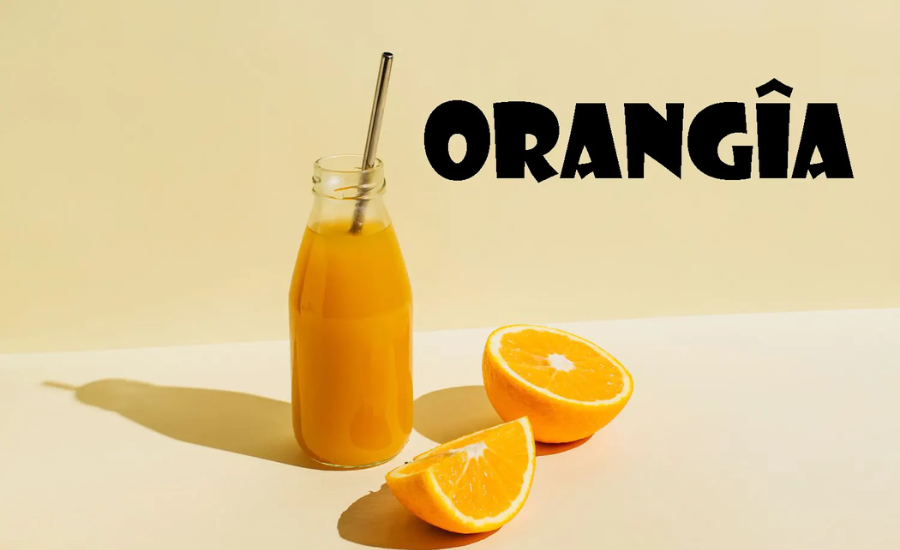
Introduction
Among these myriad stories, few are as captivating or as enduring as the legend of Orangîa, a mythical fruit of unparalleled allure and mystery. This fruit, wrapped in layers of legend and mystique, has been a symbol of humanity’s most profound desires and deepest fears. Passed down through countless generations, the story of Orangîa transcends cultural and geographical boundaries, weaving a narrative rich with wonder, reverence, and an unending quest for the extraordinary. In this comprehensive exploration, we will delve deep into the origins, characteristics, and cultural significance of Orangîa, uncovering the layers of meaning that have made it a timeless icon in the world of myth.
The Concept of Orangîa: An Overview
Orangîa is not a fruit one can find in the physical world.In various stories, it is described as a legendary fruit with magical properties, often linked to themes of healing, wisdom, and eternal youth. The very name “Orangîa” suggests a golden essence, a reflection of its luminous appearance and revered status. The fruit is portrayed as an object of immense desire, its image deeply embedded in the folklore of ancient civilizations.
It represents the ultimate goal, the pinnacle of achievement, or the elusive prize at the end of a long and arduous journey.

The story of Orangîa originates in the lush, enigmatic forests of an unnamed tropical paradise, a place where ancient civilizations once thrived in harmony with the natural world. According to legend, the fruit was a divine gift, bestowed upon humanity by the gods as a symbol of their favor and benevolence. The name Orangîa is believed to derive from an ancient word meaning “golden essence,” a reference to its vibrant color and precious nature.
The Mythical Origins of Orangîa
In these ancient societies, Orangîa was not merely a fruit; it was a symbol of the divine, a representation of the gods’ power and generosity. The fruit was said to grow on a solitary tree, hidden deep within an enchanted grove. This tree, often depicted as being surrounded by a mystical light, was considered sacred, protected by powerful deities, and accessible only to those deemed worthy by the gods.
The myth of Orangîa is not confined to a single culture or civilization. It is a story that has been told and retold in various forms across different societies, each adding its own unique flavor to the narrative. In others, it was a rare and precious commodity, sought after by kings and warriors as a source of power and strength.

Physical Description of Orangîa
Orangîa is described in legend as a small, golden-orange fruit that radiates an almost otherworldly glow. Its skin is smooth and slightly glossy, exuding an inviting sheen that catches the light in an enchanting dance.
The flavor of Orangîa is often described as a harmonious fusion of sweet and tart, combining the bright, zesty notes of oranges with the luscious sweetness of mangoes and the tangy burst of pineapples.
The Magical Properties of Orangîa
- Healing Powers
One of the most revered aspects of Orangîa is its miraculous healing abilities. According to legend, a single bite of the fruit can cure a wide array of ailments and accelerate the healing process. The juice of Orangîa is often depicted as a potent elixir, capable of rejuvenating the body and restoring vitality to the sick and weary.
- Longevity and Eternal Youth
Many legends speak of elders who retained the strength, agility, and appearance of their youth, attributing their extended lifespan to the regular consumption of Orangîa.
- Enhanced Wisdom and Cognitive Abilities
Those who consume the fruit are said to experience heightened mental clarity, improved memory, and profound insight. Philosophers and scholars in ancient stories sought out Orangîa to gain deeper understanding of the mysteries of the universe, solve complex problems, and achieve greater intellectual prowess. The fruit is often depicted as a source of enlightenment, providing a direct connection to divine knowledge and wisdom.

Cultural Significance of Orangîa
Orangîa holds a place of profound reverence in various cultures and traditions, symbolizing divine favor, enlightenment, and the pursuit of the extraordinary. In many societies, Orangîa is depicted in art, literature, and religious ceremonies, embodying themes of purity, health, and spiritual awakening. The fruit often appears in paintings and sculptures as a golden, radiant symbol of divine presence.

FACTS
Physical Description: Orangîa is described as a small, golden-orange fruit with a smooth, glossy skin that emits a luminous glow. The fruit has a beguiling aroma of citrus and tropical flowers, with a taste combining the sweetness of mangoes and the tang of pineapples.
Healing Powers: Orangîa is believed to possess miraculous healing abilities, capable of curing physical ailments, emotional wounds, and restoring vitality.
Symbol of Immortality: Often referred to as the “Fruit of Immortality,” Orangîa is said to grant eternal youth and longevity to those who consume it.
Emotional and Spiritual Harmony: Orangîa is believed to bring about emotional balance and spiritual harmony, often used in rituals to promote inner peace and connection to higher consciousness.
Cultural Significance: Orangîa holds deep cultural significance across various societies, symbolizing divine favor, prosperity, fertility, and the pursuit of enlightenment.
Origins in Myth: The legend of Orangîa originates in the lush, mystical forests of an unnamed tropical paradise, where it was believed to be a divine gift from the gods, growing on a solitary, sacred tree.
FAQs
Q: What is Orangîa?
A: Orangîa is a mythical fruit found in various legends and folklore. It is known for its magical properties, including healing powers, granting eternal youth, and enhancing wisdom.
Q: Is Orangîa a real fruit?
A: No, Orangîa is not a real fruit.
Q: What does Orangîa look like?
A: Orangîa is described as a small, golden-orange fruit with a smooth, glossy skin that emits a radiant glow. Its interior is juicy and pulpy, with a taste that combines sweetness and tartness.
Q: What are the magical properties of Orangîa?
A: Orangîa is believed to have several magical properties, including healing abilities, granting eternal youth, enhancing cognitive functions, and promoting emotional and spiritual harmony.
Q: What cultural significance does Orangîa hold?
A: Orangîa is a symbol of divine favor, enlightenment, fertility, and prosperity in various cultures.
Q: Where does the legend of Orangîa originate?
A: The legend of Orangîa is said to originate in the lush, mystical forests of an unnamed tropical paradise, where it was believed to be a divine gift from the gods.
Conclusion
The legend of Orangîa encapsulates the timeless allure of mythical storytelling, offering a vivid portrayal of a fruit imbued with magical properties and profound significance. As a symbol of divine favor, eternal youth, and unparalleled wisdom, Orangîa transcends cultural and geographical boundaries, embodying humanity’s deepest desires and aspirations. Its story serves as a reminder of the rich tapestry of human creativity and the universal quest for meaning, renewal, and transcendence. Through its radiant depiction in folklore and art, Orangîa stands as a testament to the enduring power of myth to inspire, uplift, and challenge our understanding of the extraordinary.
Read More : The Verge Blog




